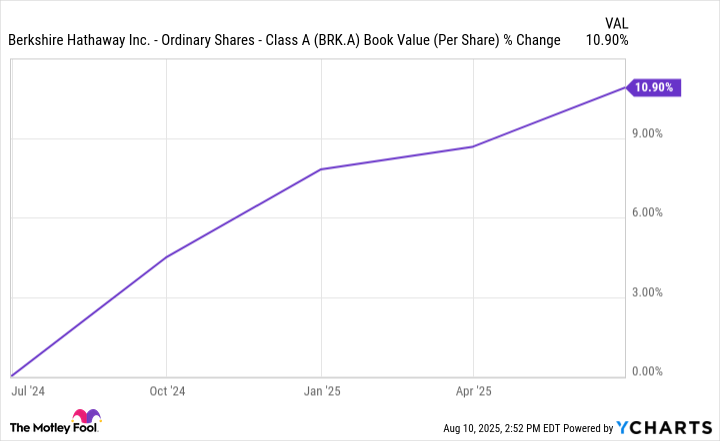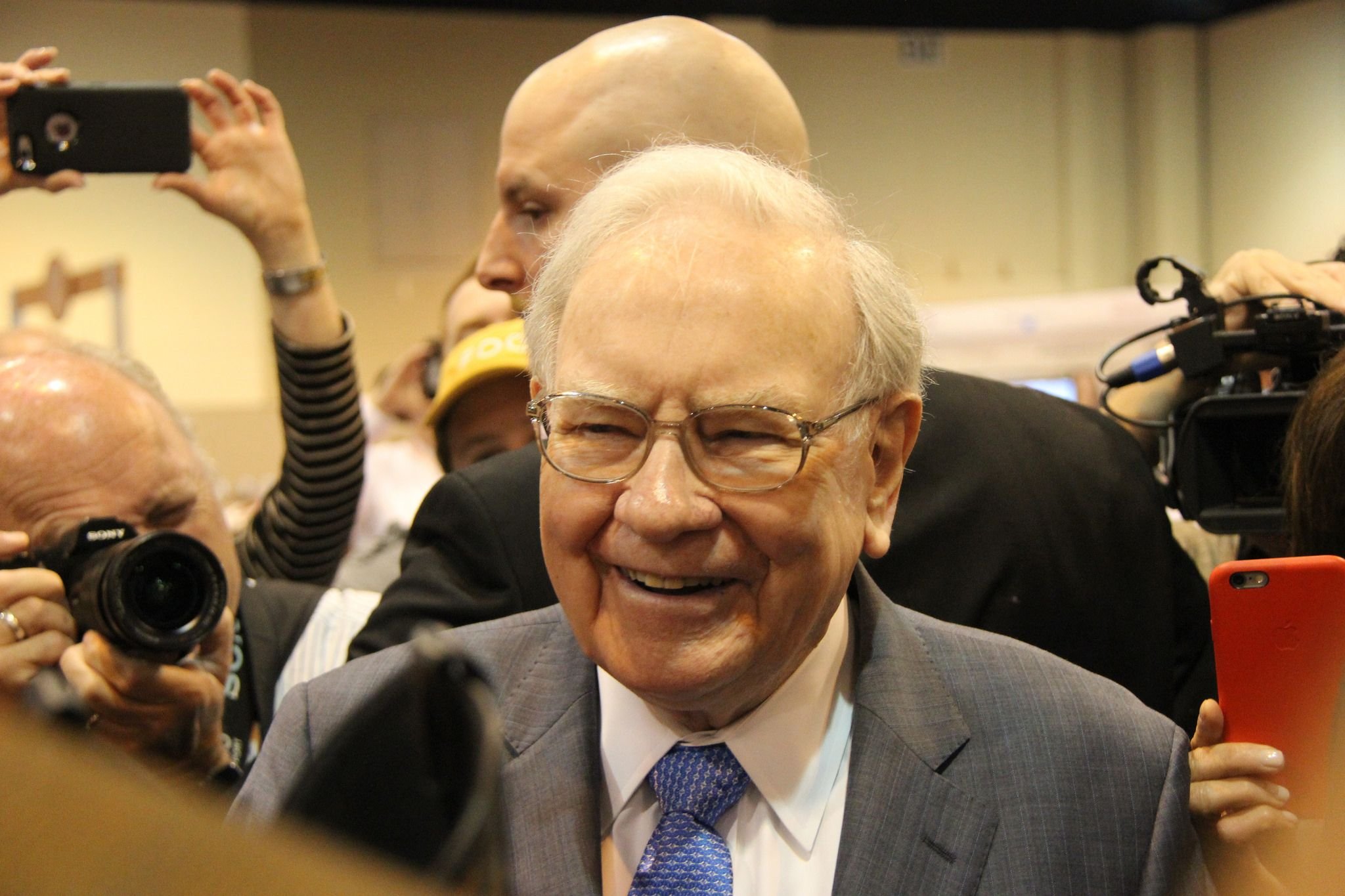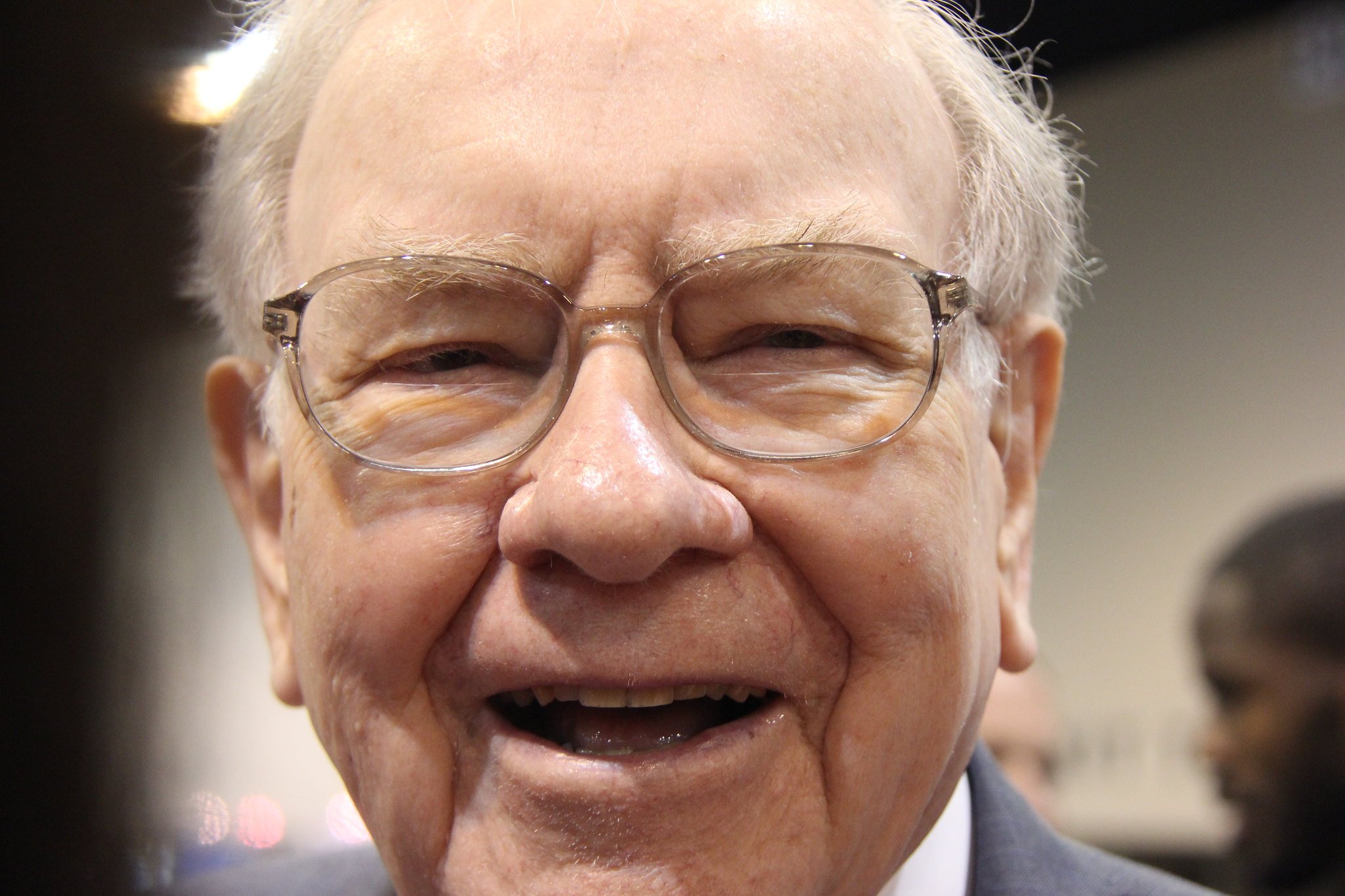Warren Buffett hasn't seen a lot to like in the stock market recently. In fact, he and his team of investment managers at Berkshire Hathaway (BRK.A 1.60%) (BRK.B 1.35%) have been net sellers of stocks for 11 straight quarters.
Buffett's stock sales have accelerated over the past five quarters. That includes monster sales of Berkshire's stakes in Apple and Bank of America. In the meantime, he's stopped buying one stock investors had seen him buy consistently each quarter since mid-2018. As a result, Berkshire's cash pile has climbed to a whopping $344 billion.
But the market may be offering Buffett an opportunity to start buying his favorite stock again, and investors should consider doing the same.

Image source: The Motley Fool.
Buffett isn't timing the market
Buffett's big stock sales over the last few years and his lack of purchases may be seen by some as the Oracle of Omaha trying to predict the future and time the market. While it might look like market timing, Buffett is merely sticking to what's worked for him as an investor for the last 60 years or so.
"We try to price, rather than time, purchases," Buffett wrote in his 1994 letter to shareholders. The same could be said of Berkshire's stock sales. If the market is offering a massive premium on one of Berkshire's holdings, Buffett ought to sell it, pocket the cash, and look for opportunities in stocks trading well below their intrinsic value. That could even include buying Berkshire Hathaway shares themselves.
In fact, the board of directors updated its share repurchase policy in 2018, allowing Buffett to buy back shares of the company as long as it traded below its intrinsic value, conservatively determined. Buffett quickly went to work buying back shares following that change, indicating that the stock looked like a bargain. Between 2018 and May 2024, Buffett spent $78 billion buying back shares of Berkshire Hathaway.
Over the last 14 months, however, Buffett hasn't spent a single dollar buying back the stock based on Berkshire's quarterly earnings reports. He holds himself to the same high standards he expects of the CEOs of all the companies Berkshire invests in. "All stock repurchases should be price-dependent. What is sensible at a discount to business-value becomes stupid if done at a premium," he wrote in his 2023 letter to shareholders.
But Berkshire shares have fallen considerably since Buffett announced he would step down as CEO at the end of the year during the company's annual meeting in May. And after a further sell-off sparked by its second-quarter earnings report, shares are starting to look a lot more appealing. That could open the door for Buffett to start buying back Berkshire's stock.

NYSE: BRK.B
Key Data Points
Will Buffett start buying again?
Berkshire Hathaway's earnings disappointed many investors, leading the market to sell off the stock.
After a stellar 2024, the insurance business is back to more normalized operations, including big payouts earlier this year due to the California wildfires. That's led to a drop in underwriting profits, which pushed the conglomerate's total operating earnings down nearly 4% last quarter. It's worth noting, however, that Berkshire faced significant foreign exchange headwinds last quarter, which negatively affected operating earnings.
Berkshire also wrote down its Kraft Heinz investment by $5 billion. That follows a $3 billion impairment charge it took in 2019. That further negatively affected reported earnings.
Nonetheless, Buffett has seen the book value per share of Berkshire Hathaway climb, including a 2.1% gain from the first quarter, and a 10.9% increase from a year ago. Combined with the declining stock price over the last three months, Berkshire Hathaway shares now trade for a price-to-book ratio of about 1.5.
BRK.A Book Value (Per Share) data by YCharts
That's an important valuation, because when Buffett last repurchased shares of Berkshire, the stock traded below that valuation. The stock has rarely dipped below that price since last May. But shares are certainly more attractive after the sell-off.
A couple of factors could keep Buffett from buying at the current price. First, Berkshire's marketable equity portfolio is a significant factor in its book value. Buffett may still see most of the stocks in the portfolio as overpriced, especially as stocks continued to climb over the past year. That would push him to require a lower multiple for Berkshire stock, since repurchasing Berkshire shares would also mean purchasing a small piece of its equity portfolio.
The other factor is that he may want to use a significant chunk of cash to bolster the railroad business in the near future. Union Pacific and Norfolk Southern have agreed to a merger, threatening the competitiveness of Berkshire's Burlington Northern Santa Fe.
When you consider the strength of Berkshire's balance sheet and that it's not relying on insurance float for any capital at this point, it should trade for a higher price-to-book value ratio than it has historically. With shares trading around 1.5 times book value, the stock finally looks to be trading near its intrinsic value again, making it worth buying.












